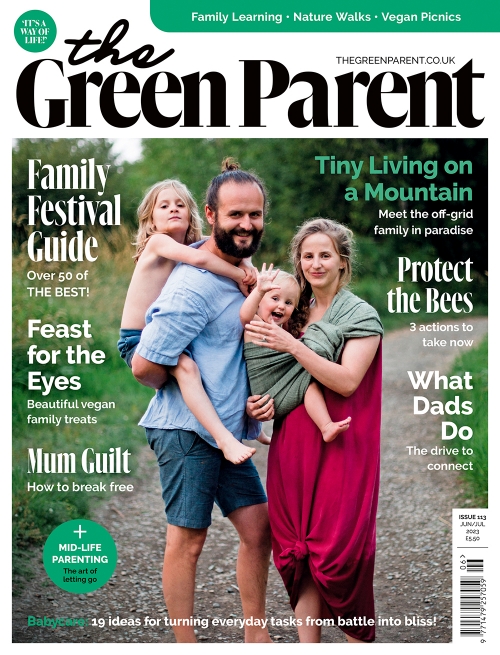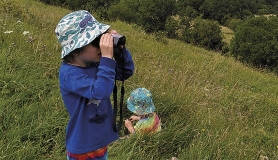Because few of today’s unschooling parents were unschooled themselves, they may have many fears about their own competence to create a rewarding learning environment. These fears are based on the parent’s inexperience with unschooling as well as on the false assumptions about learning that their school experiences taught them years ago. Here are eight tips for making a smooth transition:
1 Let the Child Lead Parents new to unschooling often feel overwhelmed by the assumption that everything is in their hands. They believe that it is up to them to choose the topics for each day. Fortunately, the truth is just the opposite. Trust that your child knows best what he is ready and eager to learn, and then help him to find whatever materials or information he needs. The best analogy is to a reference librarian, who waits until he knows what the library patron is looking for, and then helps him to find it. Relax and let your child take the lead. Once this concept is fully understood, unschooling becomes easy and joyous.
2 Trust Your Child’s Learning Style Remember that each child has his own way of approaching learning, and whatever that way is, it’s the very best way for him. My son taught himself the alphabet by creating the letters with his whole body. I was glad he wasn’t in a classroom where he would have been told to sit down! Trust that your child’s learning style is the right one for him.
3 Freedom is Essential for Learning The use of force - of any kind - interferes with learning, because the child feels coerced, monitored and limited. Children are naturally aware of many things at once - there is so much for them to learn and think about. We should treasure their spontaneity and curiosity, not force them to stay focused on what we think they should be learning.
4 Rest is as Important as Activity Research shows that significantly more learning takes place when there are rest breaks in the learning activity. The human brain needs time to process information. Don’t assume that the child is ever “doing nothing” or “just playing”. Just because we can’t see the processing doesn’t mean it isn’t there. A child recuperating from school or other stressful experiences will need even more “downtime” to recover.
5 Trust Your Child’s Built-in Time-table Learning schedules and school timetables interfere with learning. Even if we could somehow force a child to learn something sooner, he might forget it, or worse, lose interest in that subject. Isn’t it better for a child to learn to read when he most wants to do so, developing a lifelong love of reading, than being forced to learn at a younger age, growing into adulthood with an aversion toward reading in general?
6 Everything is Educational Many parents feel intimidated by the assumption that educational activities have to be scheduled into each day. Because they have attended school, they learned the invalid but relentlessly taught lesson that some things are “educational” and others are not. Nothing could be further from the truth. Everything in life is educational. Every single thing the child does brings learning, and the more fun he is having, the easier the process will be.
7 You Benefit Too The whole family can learn right along with the child. This time around, the learning will be more interesting and last much longer. Watching a child learn in a joyful and easy way can bring vicarious pleasure, helping the parents to heal from difficulties they experienced in school years ago. Topics that the parent grew to dislike in childhood can now be appreciated fully.
8 Have fun! Unschooling at its best is great fun for everyone. Be on the alert for books, toys, games and activities you think your child will enjoy. Make them available, but with no expectations or pressure. Films, board games, leisurely walks and outings with family and friends not only bring more learning but create the connection and trust that underlie the best learning environment.
Jan offers email counseling worldwide, with a focus on parenting, unschooling, and personal matters. She is the Director of The Natural Child Project.







